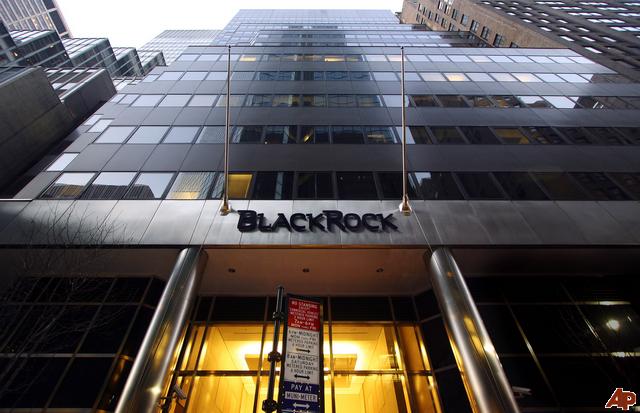BlackRock discusses Greek sovereign debt, the market problem that, like a bad house guest, just won’t go away
It’s generally not a positive sign when stocks lose ground on good news. Russ Koesterich views this as perplexing or, worse, a signal.
Koesterich is managing director and chief investment strategist at BlackRock, Inc. (NYSE:BLK), a firm generally known for modeling and risk management based on realistic, if sometimes unpleasant, reality.
BlackRock notes Greek risk with continuing concern
It was BlackRock’s Dennis Stattman who shocked some within the alternative investment space when he addressed a major risk that, like the unregulated derivatives that underlie the financial system, had previously been discussed only in whispers: the math of certain U.S. age demographics and government debt.
With that as a background, BlackRock’s Koesterich was likely for hoping for the best but preparing for the worst – the motto of a noncorrelated risk manager – when he noticed the recent economic numbers and wondered. With sovereign debt starting to become a mainstream issue – news headlines from Greece, Detroit and Argentina are all linked to a certain extent – the letter observed that despite positive signs from Europe, why were stocks in the U.S. lower on good news? Europe’s positive stock market reaction in the face of Greece seems like a vote of confidence in Eurozone central planner manipulation to a certain extent, yet Koesterich was observing the decidedly negative reaction in U.S. stocks.
Could it be the concerns underneath the market that delaying a problem is just becomming harder and harder?
BlackRock’s Koesterich, seeming to have a grasp of certain key sovereign debt issues, says the Greek risk is “lurking” and that investors are “dismissing” the risk:
In short, Greece could be facing a serious crisis. Yet there is little evidence that investors are overly concerned about the potential ramifications: that Greece might exit the eurozone or the risks spread to peripheral countries. While a Greek exit is still not our base case scenario—another last minute compromise is the most likely outcome—the risks are rising. With volatility still below average, there is a lot of room for it to rise should there be an actual catalyst.
Is stock market overvaluation the time when “investors may want to revisit their investment planning?
A reasonable degree of the potential volatility was due, at a macro level, to professional concern over sovereign debt in Europe and to a lessor extent the unregulated derivatives that could drive economic chaos.
As the markets remain at historic valuations – quantitative analysts might consider this the upper edge of a value trading range with a red flag on mean reversion as one potential outcome – the BlackRock strategy reveals an apparent risk manager:
Greece aside, the rise in volatility represents a relatively normal adjustment. And while an uptick in volatility doesn’t herald an end to the bull market, it does imply that investors may want to revisit their investment positioning. Last week was illustrative. The rise in volatility had a predictable impact: Stocks that are most expensive and have been driven by momentum were the hardest hit.
Take note of that last sentence and understand that as momentum algorithms start to flag in price persistence, certain alternative asset managers have programmed triggers to reduce position size and on an individual stock level certain stocks become untradeable from a momentum perspective, Tesla being a prime example of this.
Greek risk and and delicate surgery to remove Federal Reserve “Ritalin”
Koesterich, like many on Wall Street, is mostly an economic fundamental player and likely isn’t monitoring the algorithim traders to the same extent. But those who watch algos and understand fundamental market performance drivers juxtaposed Greece with another key risk management issue that is, again, most often typically addressed in the mainstream using only whispers: Fed stimulus withdrawal.
To date Fed Chair Janet Yellen has been a superb if generally unheralded surgeon in attempting to extract what former Dallas Fed president Richard Fisher might call “Ritalin.” This comment is focused on removing what Fisher claimed in a CNBC interview to be creating “lazy” dependence by stock investors on an artificial stimulant: quantitative easing.
Yellen is performing this intervention and many behind the scenes are modeling the quantitative impact quantitative easing has on the real economy. With stocks valuations at all-time high levels, they don’t know the future, but they know logic and what can drive free markets.
Raising rates has generally not been a positive economic period for stocks, most often correlated with increased volatility, but at a time when geopolitical risk factors abound and value in stocks is scarce, market participants might do well to consider their investment’s performance driver correlation during extended periods of volatility.
Modeling the stock market is no easy task, particularly when considering the myriad of difficult to model risk considerations. When considering Greek risk, Koesterich looks down a path that hasn’t been much discussed. While the focus in Greece has been on Syriza party leaders, and in particular the rock and roll wanna-be jet setter Greek finance minister, the real issue could come down to democracy in the cradle of democracy:
Even if the government does manage to submit an acceptable set of reforms, it is not clear that the governing coalition will be able to hold together and get the reforms passed by the Greek parliament.









